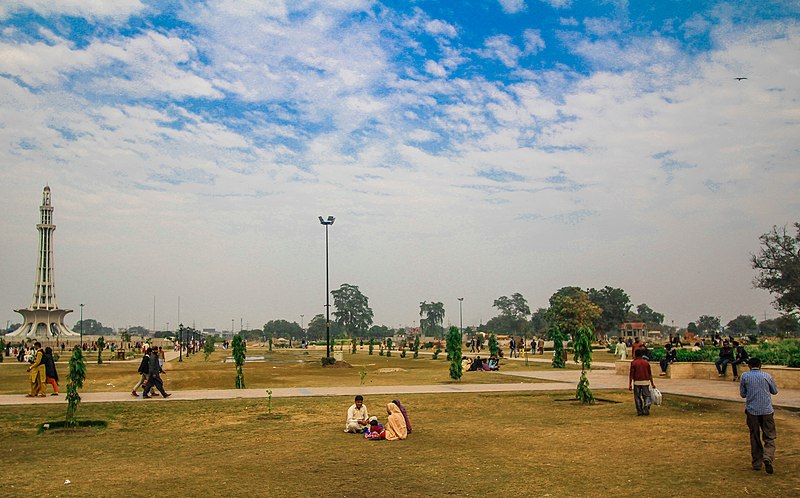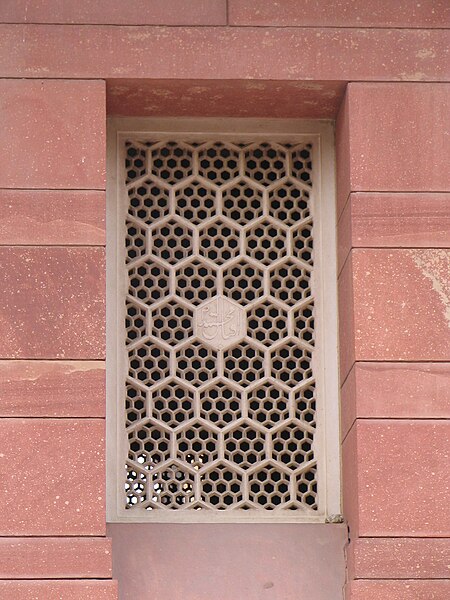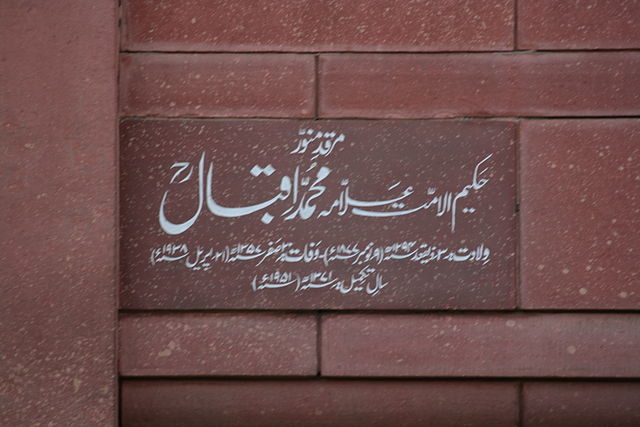
A book newly acquired by the Thammasat University Library explores how important reading can be for a writer. Stray Reflections: a Note-book of Allama Iqbal is a collection of brief observations by Muhammad Iqbal (1877–1938), known as Allama Iqbal, a poet and philosopher who is called the Spiritual Father of Pakistan. Allama is an honorary title given to scholars of Islamic law and philosophy. His writings in the Urdu and Persian languages are still very influential today. Stray Reflections was generously donated to the TU Library by the Embassy of Pakistan in the Kingdom of Thailand, coordinated by Khun Imran Shauket, Goodwill Ambassador of the Alhamra. It is shelved in the Pakistan Corner of the Pridi Banomyong Library, Tha Prachan campus. The TU Library owns other books by and about Muhammad Iqbal.
Stray Reflections puts together notes by Iqbal about his wide reading in different languages. His thoughts are expressed in aphoristic form. An aphorism is a brief statement that appears to contain a general truth or principle. The noun aphorism derives from an ancient Greek term meaning definition, so if we create an aphorism, we are trying to define something. Iqbal defined his conclusions based on many years of study. He spent most of his life in Lahore, Pakistan. He earned bachelor of arts and master of arts degrees from Government College University in that city, focusing on philosophy, English literature, and Arabic. There he was influenced by Sir Thomas Arnold, author of Mughal Paintings and Painting in Islam, who recommended that he study in the West. So Iqbal earned another bachelor of arts degree at Trinity College, Cambridge University. He qualified as a barrister in the United Kingdom before receiving a Ph.D. from the Ludwig Maximilian University of Munich, Germany, writing a thesis on The Development of Metaphysics in Persia. In Germany, his language tutor, Emma Wegenast, introduced him to masterpieces of German literature by such authors as Johann Wolfgang von Goethe, Heinrich Heine, and Friedrich Nietzsche. He was also much influenced by the French philosopher Henri Bergson and the English poet William Wordsworth. The TU Library owns a number of books by and about all of these writers.

Although he wrote poetry in the Persian language and was deeply interested in Islamic studies, Iqbal was also permanently interested in Western writers, to the point where in his Stray Reflections, he preserved many ideas about them some years after he first read their works. His thoughts about Islam were developed not just by reading and thinking about Islamic literature. He read many different kinds of writers from around the world, and applied their example to his field of specialized study.
Iqbal would be named professor of philosophy and English literature at Government College Lahore. Among his own memorable thoughts are the following:
- Nations are born in the hearts of poets; they prosper and die in the hands of politicians.
- It is idle to seek logical truth in poetry. The ideal of imagination is beauty, not truth. Do not then try to show a poet’s greatness by quoting passages from his works which, in your opinion, embody scientific truth.
- Art is a sacred lie.
- The Discovery. Our Soul discovers itself when we come into contact with a great mind. It is not until I had realised the Infinitude of Goethe’s imagination that I discovered the narrow breadth of my own.
- Hegel’s system of philosophy is an epic poem in prose.
Georg Wilhelm Friedrich Hegel was a German philosopher whose books are in the collection of the TU Library, as well as books about him. More reflections by Iqbal:
- History is a sort of applied ethics. If ethics is to be an experimental science like other sciences, it must be based on the revelations of human experience. A public declaration of this view will surely shock the susceptibilities even of those who claim to be orthodox in morality but whose public conduct is determined by the teachings of history.
- Life as Criticism of Poetry. Matthew Arnold defines poetry as criticism of life. That life is criticism of poetry is equally true.
- The Vague and the Obscure. Matthew Arnold is a very precise poet. I like, however, an element of obscurity and vagueness in poetry; since the vague and the obscure appear profound to the emotions.
Matthew Arnold was an English poet and cultural critic who lived in the 1800s. The TU Library owns several books by and about him. Iqbal also noted:
- I have the greatest respect for Aristotle, not only because I (living in the twentieth century) know him much better than the older generations of my community, but also because of his vast influence on the thought of my people. The tinge, however, of ingratitude revealed in his criticism of Plato’s doctrine of Ideas withholds me from giving him my fullest admiration. I do not deny the truth contained in his criticism of his master’s views; but I detest the spirit in which he chooses to approach them.
- The Popularity of a Poem. The popularity of a poem does not depend on the amount of logical truth revealed in it. Goldsmith’s “Deserted Village” is extremely popular; yet the poem is full of scientific inaccuracies and bad economic reasoning.
Oliver Goldsmith was an Irish novelist, playwright and poet who lived during the 1700s. His poem The Deserted Village (1770) which Iqbal refers to is a work of social commentary, criticizing the way that people leave the countryside to try to find jobs in cities. The poem is also critical people whose main purpose in life is to become rich. The Deserted Village is about a place, probably in England, where most of the inhabitants have left to try to make their fortune in the United States of America. Goldsmith disapproves of the rush to own possessions. He believed that people who work hard to become rich do not always succeed, and even if they do, they are not always happy as a result. Too many luxury products are not good for people, according to Goldsmith. Even in his own time, some readers of Goldsmith’s poem disagreed about how accurate his descriptions of life in the English countryside were. It is natural that over a century later, Iqbal also found that Goldsmith’s conclusions did not apply to India.
Iqbal also wrote:
- The true sphere of Mazzini was literature, not politics. The gain of Italy is not much compared to the loss which the world has suffered by his devotion to politics.
Giuseppe Mazzini was an Italian politician, journalist, and activist for the unification of Italy in the 1800s. He helped to create an independent and unified Italy. His writings were considered important by many modern world leaders, including Mahatma Gandhi, Jawaharlal Nehru, and Sun Yat-sen. Readers of Giuseppe Mazzini’s works, some of which are analyzed in books in the collection of the TU Library, tend to think of him mainly as a writer on political subjects. However Iqbal was correct that Mazzini also cared about other themes. He enjoyed singing and playing the guitar, and even wrote a Philosophy of Music about how music might become a social art in Italy. Like Mazzini, Iqbal too combined artistic concerns with meditations about politics:
- Goethe’s Faust. Goethe picked up an ordinary legend and filled it with the whole experience of the nineteenth century – nay, the entire experience of the human race. This transformation of an ordinary legend into a systematic expression of man’s ultimate ideal is nothing short of Divine workmanship. It is as good as the creation of a beautiful universe out of the chaos of formless matter.
- The Puritan theology of Milton cannot appeal to the imagination of our age. Very few people read him. Voltaire is quite true in saying that Milton’s popularity will go on increasing because nobody reads him. There is, however, one thing in Milton. No poet has been more serious about his task than him. His style – a gigantic architecture consecrated to false deities – will always stand untouched by the palsied hand of time.
- The Soul of Oscar Wilde. The soul of Oscar Wilde is more Persian than English.
Given Iqbal’s studies in Germany, it is not surprising that he had a high opinion of Goethe’s works. He may have underrated the poems of John Milton, an English poet from the 1600s who is more read and studied now than in Iqbal’s time. His opinion of Oscar Wilde, a writer well represented in the TU Library collection, is also insightful, reminding us that Iqbal’s achievements may have been due in part to his refusal to limit his own reading or interests. This approach helped him to better understand the world and what has been written about it.

(All images courtesy of Wikimedia Commons)

